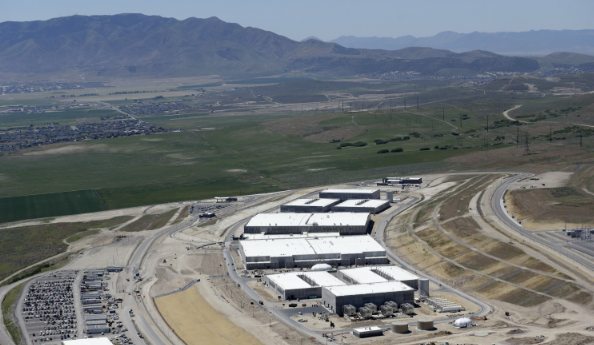It’s a pretty sad spectacle watching the US Congress toading up to the National Security Agency. With the exception of a few stalwarts like Sen. Bernie Sanders (I-VT) and to a lesser extent Ron Wyden (D-OR), most of the talk in the halls of Congress is about how to keep the army of Washington private contractors from accessing too many of the government’s secrets (which need to be protected by government employees!), and about whether to try NSA whistleblower Ed Snowden for treason.
NSA Director James Clapper was able to lie bald-facedly to the Senate Intelligence Committee last week without even a reprimand, much less a contempt citation, claiming that the NSA does not spy on millions of Americans’ telecommunications. That type of behavior by members of the executive branch makes a laughing stock out of Congress, but the members of Congress don’t seem to care. They know that they are already viewed as corrupt and loathsome toadies by the broad spectrum of Americans who continue to elect them to office, their collective approval rating now having fallen to a record low of 10% (who are those 10%, anyhow, the extended families of the members of Congress, or dead people in Chicago whose names are being forged on polling forms?). I guess the attitude among Congresspersons must be that they don’t have anything to lose by being accommodating to the march of the national security state. They have hit bottom already.
Poor Snowden, who has put his life on the line in an attempt to try and wake up the somnolent American public to how our free society has been hijacked by a fascist consortium of security agencies and private corporations, has to watch as the broad mass of Americans turn away from the news and switch to the endless stream of police dramas, where the Constitution is viewed as an anachronistic impediment to justice, and the cops are all good guys dedicated to protecting the rest of us.
The frightened and vengeful police state is intent on shutting Snowden down.
Fortunately, Snowden is no slouch, and has given himself some personal insurance in the form of downloaded information that, as he put it in his initial television interview from Hong Kong, could “shut down” the US intelligence machine overnight.
 Hong Kong residents march to a rally in front of the US Consulate in defense of NSA whistleblower Ed Snowden, demanding that Hong Kong authorities and Hong Kong courts not extradite him back to the US.
Hong Kong residents march to a rally in front of the US Consulate in defense of NSA whistleblower Ed Snowden, demanding that Hong Kong authorities and Hong Kong courts not extradite him back to the US.









